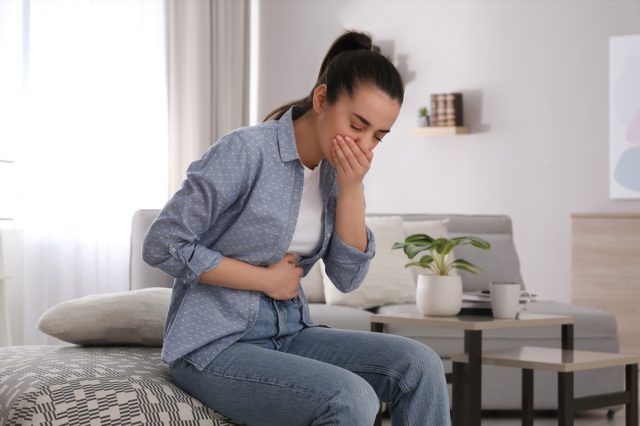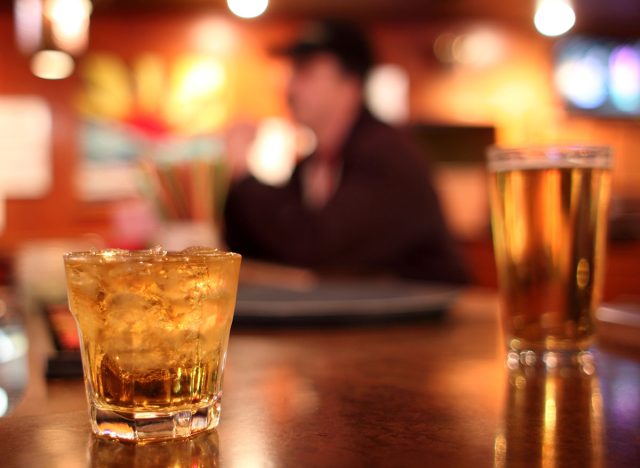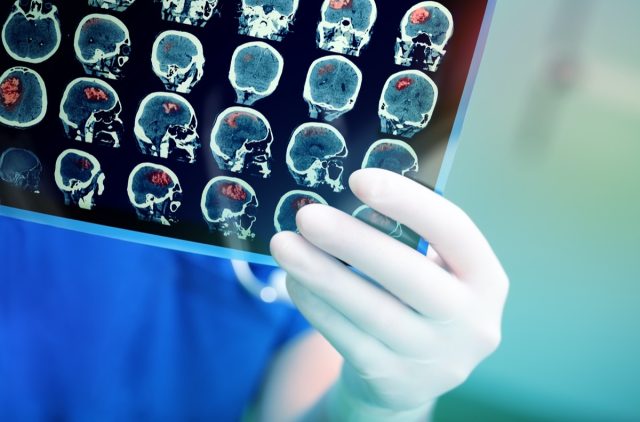Using marijuana for medicinal purposes has great benefits for some patients with health conditions like seizures, autism and anxiety. But smoking weed on a regular basis, especially in your teenage years, can be harmful in several ways. Eat This, Not That! Health talked to Dr. Richard J Kang, MD, MHA Chair, Department of Pediatrics, Medical Director, PICU Pediatric Trauma and Medical Center with Dignity Health Northridge Hospital Medical Center who explained the damaging side effects that some people could experience using marijuana. Read on—and to ensure your health and the health of others, don’t miss these Sure Signs You’ve Already Had COVID.
Dr. Kang says, “Short term cannabis use in children can result in problems with memory and concentration leading to difficulties in school. Increased aggression is seen in children with cannabis use. As we see an increase in mental health issues in children and adolescents, cannabis use has been associated with worsening of underlying mental health conditions including mood disorders and suicidal ideation. There is also an increased risk of psychosis associated with cannabis use.”

According to Dr. Kang, “Long term cannabis use can lead to Cannabis use disorder. This leads to using cannabis more often than intended, having cravings and interference with other activities. It also can result in the same respiratory issues as smoking cigarettes such as coughing, wheezing, decreased exercise endurance, and lung cancer. Long term can be associated with lower intelligence with decline in academic or occupational performance. There is again a higher risk of mental health problems such as schizophrenia, depression, anger, and suicidal ideation.”
RELATED: Surefire Ways to Shrink Abdominal Fat

“Chronic cannabis use can also lead to Cannabinoid Hyperemesis Syndrome (CHS),” says Dr. Kang. “Symptoms include nausea, cyclical vomiting, and abdominal pain. Cannabis users with CHS will take frequent hot baths for comfort. The interaction with cannabis and the digestive tract is believed to be the reason for the gastrointestinal symptoms. Treatment includes cessation of cannabis use and anti nausea medications.”
RELATED: Warning Signs You Have a “Fatty Liver”

Dr. Kang states, “Cannabis use in children is associated with higher incidence of alcohol and illicit drug use. With increased potency of THC in cannabis currently there are higher risks of addiction not only to cannabis but to other substances. Vaping only exacerbates this issue as higher potencies of THC are more accessible to the pediatric population. There is also concern with higher potency of cannabis and the increased risk of chronic use leading to mental illness in children.”
RELATED: How to Reverse Dementia Risk, According to Experts

The Centers for Disease Control and Prevention states, “Unlike adults, the teen brain is actively developing and often will not be fully developed until the mid 20s. Marijuana use during this period may harm the developing teen brain.
Negative effects include:
- Difficulty thinking and problem solving.
- Problems with memory and learning.
- Impaired coordination.
- Difficulty maintaining attention.”
RELATED: Here’s When COVID Will End, Predict Experts

According to the CDC, “Marijuana use in adolescence or early adulthood can have a serious impact on a teen’s life.
- Decline in school performance. Students who smoke marijuana may get lower grades and may be more likely to drop out of high school than their peers who do not use.
- Increased risk of mental health issues. Marijuana use has been linked to a range of mental health problems in teens such as depression or anxiety. Psychosis has also been seen in teens at higher risk like those with a family history.
- Impaired driving. Driving while impaired by any substance, including marijuana, is dangerous. Marijuana negatively affects a number of skills required for safe driving, such as reaction time, coordination, and concentration.
- Potential for addiction. Research shows that about 1 in 6 teens who repeatedly use marijuana can become addicted, which means that they may make unsuccessful efforts to quit using marijuana or may give up important activities with friends and family in favor of using marijuana.” So be careful with this substance, and to protect your life and the lives of others, don’t visit any of these 35 Places You’re Most Likely to Catch COVID.

 The Best Legal Delta 9 Near You in Park Forest North
The Best Legal Delta 9 Near You in Park Forest North 
Be the first to comment